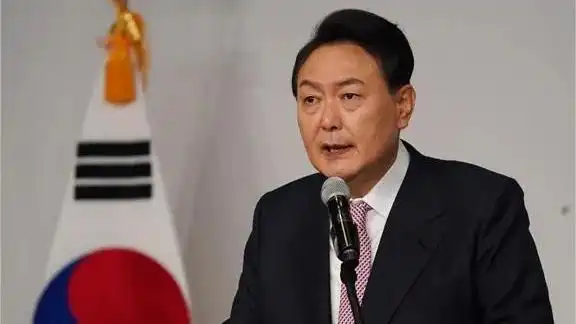South Korean National Assembly Election:The pattern of "small and big" remains unchanged, and the ruling party is defeated miserably
2024.0412

Number of words in this article:2044, reading time is about 3 minutes
introduction:韩国第22届国会选举结果公布,最大在野党共同民主党及其卫星政党赢得175个席位,保持国会第一大党地位。
** Author| ** First Finance and Economics Pan Yinru
The results of the latest South Korean National Assembly election show that South Korean politics will continue to be "small and big" in the next three years. According to CCTV News and Xinhua News Agency, the counting of votes in the 22nd South Korean National Assembly election was completed, and the largest opposition party, the Common Democratic Party, and its satellite party won a total of 175 seats (an increase of 13 seats), continuing to maintain their position as the largest party in Congress. The ruling National Power Party and its satellite party suffered a fiasco, winning only 108 seats (a reduction of 5 seats). The final statistics released by South Korea's Central Electoral Administration Commission on the 11th showed that the voter turnout in the current Congress election was 67%, hitting a new high 32 years later. Huang Fei, a professor at Seoul Graduate School of Science University, who closely follows the election situation, believes that the election results are expected, and the only slight surprise is that the final election results show that in terms of the number of seats in the regional parliament, President Yoon Sik-Yue's ruling National Force Party has reached a maximum of 90 seats that has not been predicted by South Korea's four major media. "moreover, among the representatives of congressmen in the closely watched districts of Seoul, compared with the results of the 21st Congress election, it is quite surprising that the ruling party narrowly defeated the opposition parties in areas such as Tongque B, Mapujia and Daofengjia." She said. On the same day of the election, a series of latest economic data were also released in South Korea. Whether it is record debt or monthly unemployment data that have increased for five months in a row, how to solve the economic dilemma has become a top priority for the South Korean government.
Inflation and weak economic growth are the main reasons
Huang Fei said that the price of the people's livelihood and the lack of an engine of economic growth were the primary reasons why the ruling party was defeated in the election. "the failure of the Yin Xiyue government to regulate and control prices caused the broad masses of people to vote for the opposition parties." Huang Fei believes that during the two years in office of Yin Xiyue's government, South Korea's economy has gone from bad to worse. After 2024, prices have increased significantly, and basic living expenses, such as water, electricity, and gasoline, have been higher than before. The recent sharp rise in the price of agricultural products has made life difficult for South Koreans. "it can be said that except wages have not gone up, all other prices have gone up." South Korea's consumer price index (CPI) rose 3.1% in February from a year earlier, including 20.9% for agricultural products and 41.2% for fresh fruit, according to the Korea Bureau of Statistics. In addition, South Korea's gross domestic product (GDP) grew 1.4% year-on-year in 2023. For the first time in 25 years, South Korea's economic growth was lower than that of Japan. At the latest meeting of the financial and monetary committee of the central bank of Korea on April 12th, the central bank of Korea left its benchmark interest rate unchanged at 3.5%. It is worth noting that the interest rate of 3.5% of the Bank of Korea has lasted for more than one year and two months since the end of January last year.
